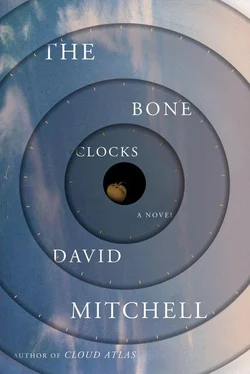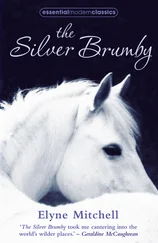One day in October a coach pulled by four white thoroughbreds pulled up on Primorsky Prospect, and the equerry of Tsarina Elizabeth delivered to my family a summons to the Winter Palace for an audience with the Tsarina. Neither Dmitry nor Vasilisa slept a wink and were awed by the succession of sumptuous chambers we passed through on our journey to the Tsarina’s apartment. My metalife had inoculated me against pomp centuries ago. Of Tsarina Elizabeth, I best recall her sad bass clarinet of a voice. My foster parents and I were seated on a long settle by a fire, while Elizabeth favored a high-backed chair. She asked questions in Russian about my life as a serf, then switched to French to probe my grasp of a variety of subjects. In her native German, she supposed that my round of engagements must be rather tiresome? I said that while an audience with a tsarina could never be tiresome, I would not be sorry when I was yesterday’s news. Elizabeth replied that I now knew how an empress feels. She had the newest pianoforte from Hamburg and asked if I cared to try it out. So I played a Japanese lullaby I’d learned in Nagasaki, and it moved her. Apropos of I’m not sure what, Elizabeth asked me what sort of husband I dreamed of. “Our daughter is still a child, Your Highness,” Dmitry found his tongue, “with a headful of girlish nonsense.”
“I was wedded by my fifteenth birthday.” The Tsarina turned to me and Dmitry lost his tongue again.
Matrimony, I remarked, was not a realm I yearned to enter.
“Cupid’s aim is unerring,” Elizabeth said. “You’ll see. You’ll see.”
After a thousand years, dear Tsarina , I did not retort, his arrows tend to bounce off me . I agreed that no doubt Her Highness spoke the truth. She knew a fudged answer when she heard it, and suggested that I preferred books to husbands. I agreed that books tended not to switch their stories whenever it suited them. Dmitry and Vasilisa shifted in their borrowed finery. The jaded queen of a court in which adultery was a form of entertainment looked through me, the gold of the fire toying with the gold of her hair. “What an old sentence,” she said, “from such youthful lips.”
OUR VISIT TO the royal court triggered a new wave of gossip about Klara Koskov’s true paternity that caused embarrassment for my foster father, so we brought my brief career as a salon curiosity to a timely close. Our decision coincided with Uncle Pyotr’s return from a half year in Stockholm, and the Chernenko residence on Dzerzhinsky Street became a second home for us. Pyotr’s ex-actress wife, Yuliya Grigorevna, became a loyal friend and held dinners where I met a broader cross section of Petersburgers than I had in the higher stratum of the salons. Bankers, chemists, and poets rubbed shoulders with theater managers, clerks, and sea captains. I continued to read voraciously, and wrote to many authors, signing myself “K. Koskov” to conceal my age and gender. Horology’s archives still contain letters to K. Koskov from the physician René Laënnec, the inventor Humphrey Davy, and the astronomer Giuseppe Piazzi. University was not yet a possibility for women, but as the years passed, many of the liberal-leaning Petersburg intelligentsia visited the Chernenkos to discuss their papers with the cerebral bluestocking. In time, I even received a few marriage proposals, but neither Dmitry nor Vasilisa Koskov was eager to lose me, and I had no desire to become a man’s legal property for a second time.
KLARA’S TWENTIETH CHRISTMAS came, and her twelfth with the Koskovs. She received fur-lined boots from Dmitry, piano music from Vasilisa, and a sable cloak from the Chernenkos. My journal records that on January 6, 1823, Dmitry gave a sermon on Job and the hidden designs of Providence. The choir of the Church of the Annunciation of the Blessed Virgin gave only a mediocre performance due to sore throats and colds. Snow lay deep in the gutters, fog and smoke filled the alleyways, the sun was a memory, icicles hung from the eaves, steam snorted white from the horses’ frozen nostrils, and ice floes as big as boats floated on the thundercloudgray Neva River.
After our midday meal, Vasilisa and I were in the parlor. I was writing a letter in Dutch about osmosis in giant trees to a scholar at Leiden University. My foster mother was marking the French compositions of some of her pupils. The fire gnawed logs. Galina, our housekeeper, was lighting the lamps and tutting about my eyesight when we heard a knock at our door. Jasper, our little dog of uncertain pedigree, went skating and yapping down the hall. Vasilisa and I looked at each other but neither of us was expecting a caller. Through the lace curtain we saw an unknown coach with a veiled window. Galina brought in a card, given to her by a footman at the door. Dubiously, my mother read it aloud: “Mr. Shiloh Davydov. ‘Shiloh’? It sounds foreign to me. Does it sound foreign to you, Klara?” Davydov’s address, however, was the respectable Mussorgky Prospect. “Might they be friends of Uncle Pyotr’s?”
“ Mrs . Davydov is in the coach, too, I’m told,” added Galina.
With a sudden change of mind that I would later recognize as an Act of Suasion, Vasilisa’s doubts evaporated. “Well, invite them in, Galina! What must they think of us? The poor lady’ll be freezing!”
“PARDON OUR UNANNOUNCED intrusion,” said a spry man with expansive whiskers, a plangent voice, and dark clothes of a foreign cut, “Mrs. and Miss Koskov. The fault is all mine. I had my letter of introduction written before church, but then our stable boy got kicked by a horse and we had to summon a doctor. With all this brouhaha afoot, I quite neglected to ensure that the letter I had written had in fact been brought to you. My name is Shiloh Davydov, and I am at your service.” He handed his hat to Galina with a smile. “Of Russian extraction from my father, but resident in Marseille, in so far as I am ‘resident’ anywhere. And may I,” even then, I noticed a Chinese cadence to his Russian, “may I present my wife, Mrs. Claudette Davydov, who, Miss Koskov, is better known to you”—he waggled his cane—“by her maiden and pen-name ‘C. Holokai.’ ”
This was unexpected. I had corresponded with “C. Holokai,” author of a philosophical text on the Transmigration of the Soul, several times, never dreaming that he might be a she. Mrs. Davydov’s dark, inquisitive face hinted at Levantine or Persian extraction. She was dressed in dove-gray silk and wore a necklace of black and white pearls. “Mrs. Koskov,” she addressed Vasilisa, “thank you for your hospitality to two strangers on a winter’s afternoon.” She spoke Russian more slowly than her husband, but enunciated with such great care that her listeners paid close attention. “We should have waited until tomorrow before inviting you to our house, but the name of ‘K. Koskov’ came up only an hour ago at the house of Professor Obel Andropov and I took it as a — as a sign.”
“The professor is a friend,” said my foster mother.
“And a classical linguist of the first rank,” I added.
“Indeed. Well, Professor Andropov told me that the ‘K’ stood for ‘Klara’; and then, on our way home, by chance I glanced out of our coach and saw your father’s church. A hobgoblin told me to see if you were at home, and I’m afraid that I”—Claudette Davydov asked her husband in Arabic how to say the word “succumbed” in Russian, and Shiloh Davydov repeated it for her—“I succumbed.”
“My, my,” said Vasilisa, blinking at the exotic strangers whom she’d apparently invited into her house. “My. You’re both welcome, I’m sure. My husband will be home presently. Make yourselves as comfortable as you can, I beg you. This is not a palace but …”
“No palace I ever saw was half so friendly.” Shiloh Davydov looked around our parlor. “My wife’s been excited about meeting ‘K. Koskov’ since the day I resolved to visit Petersburg.”
Читать дальше












